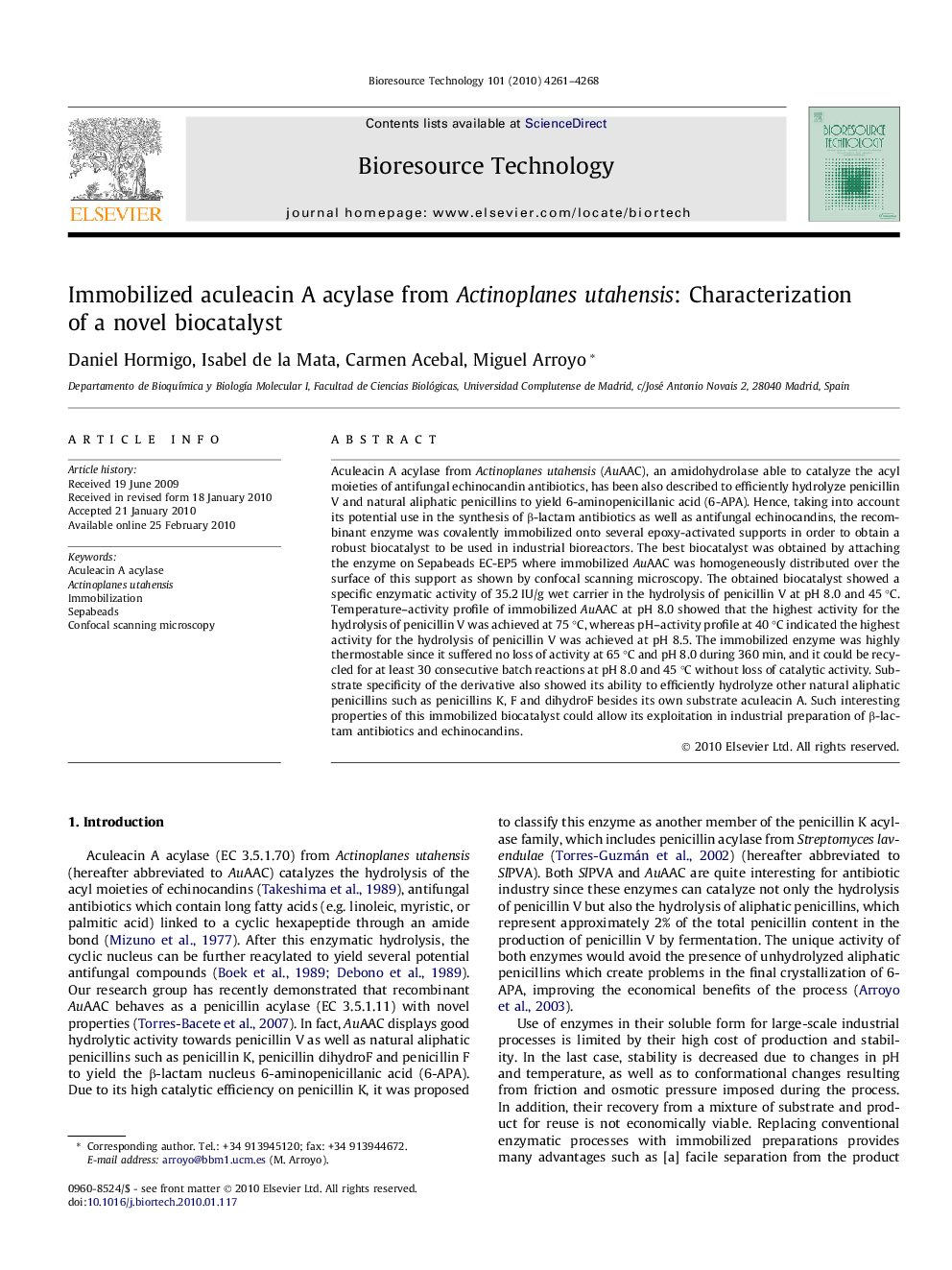| Article ID | Journal | Published Year | Pages | File Type |
|---|---|---|---|---|
| 10395587 | Bioresource Technology | 2010 | 8 Pages |
Abstract
Aculeacin A acylase from Actinoplanes utahensis (AuAAC), an amidohydrolase able to catalyze the acyl moieties of antifungal echinocandin antibiotics, has been also described to efficiently hydrolyze penicillin V and natural aliphatic penicillins to yield 6-aminopenicillanic acid (6-APA). Hence, taking into account its potential use in the synthesis of β-lactam antibiotics as well as antifungal echinocandins, the recombinant enzyme was covalently immobilized onto several epoxy-activated supports in order to obtain a robust biocatalyst to be used in industrial bioreactors. The best biocatalyst was obtained by attaching the enzyme on Sepabeads EC-EP5 where immobilized AuAAC was homogeneously distributed over the surface of this support as shown by confocal scanning microscopy. The obtained biocatalyst showed a specific enzymatic activity of 35.2 IU/g wet carrier in the hydrolysis of penicillin V at pH 8.0 and 45 °C. Temperature-activity profile of immobilized AuAAC at pH 8.0 showed that the highest activity for the hydrolysis of penicillin V was achieved at 75 °C, whereas pH-activity profile at 40 °C indicated the highest activity for the hydrolysis of penicillin V was achieved at pH 8.5. The immobilized enzyme was highly thermostable since it suffered no loss of activity at 65 °C and pH 8.0 during 360 min, and it could be recycled for at least 30 consecutive batch reactions at pH 8.0 and 45 °C without loss of catalytic activity. Substrate specificity of the derivative also showed its ability to efficiently hydrolyze other natural aliphatic penicillins such as penicillins K, F and dihydroF besides its own substrate aculeacin A. Such interesting properties of this immobilized biocatalyst could allow its exploitation in industrial preparation of β-lactam antibiotics and echinocandins.
Related Topics
Physical Sciences and Engineering
Chemical Engineering
Process Chemistry and Technology
Authors
Daniel Hormigo, Isabel de la Mata, Carmen Acebal, Miguel Arroyo,
